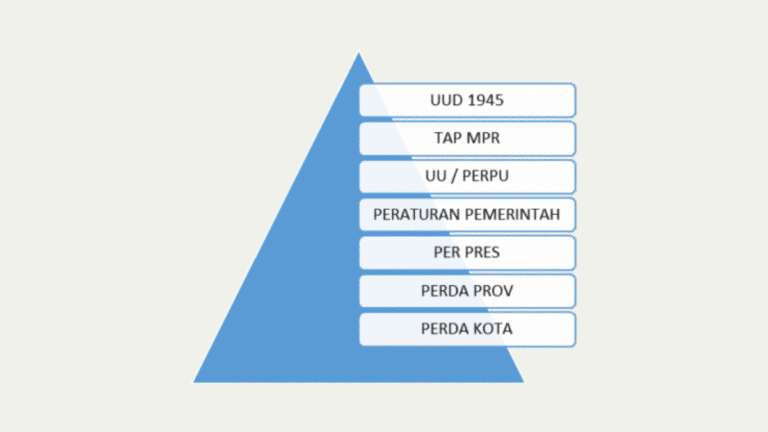Legal Literacy – Learn the meaning of law and ethics, the difference between the two, and the importance of complying with both in everyday life. Discover how law and ethics interconnect and influence individual and societal behaviour. Gain insight into legal and ethical aspects and possible conflicts. Read this article to understand how law and ethics shape norms and values in society.
Law as well as ethics are two important concepts that play a role in regulating the behaviour of individuals and society. While both relate to accepted norms and values within an environment, they have their own differences and functions. This article will explain the meaning, difference, and relationship between the two, as well as the importance of adhering to them in daily life.
Definition of Law and Ethics
Law is a set of rules and regulations set by the government to govern the behaviour of individuals and society. Laws have binding legal force and can sanction violators. Ethics, on the other hand, is a set of moral principles and values that govern human actions and behaviour. Ethics does not have binding legal force, but it provides moral guidance in making decisions.
The Difference Between Law and Ethics
While both law and ethics have the same goal of regulating human behaviour, there are some differences between the two. The main difference is that law is legal and legally binding, whereas ethics is moral and not legally binding. Laws are regulated by the government and apply to all individuals within a country, while ethics can vary depending on the beliefs and values held by society.
Purpose of Law and Ethics
The purpose of law is to create social order, maintain justice, and protect the rights of individuals and society. Laws also aim to provide legal certainty for all parties and prevent conflict. Meanwhile, the purpose of ethics is to promote good, honest, and just actions in everyday life. Ethics focuses on developing individual morality and maintaining moral integrity in society.
The Function of Law and Ethics in Society
Law has a primary function as a means of enforcing rules and sanctions for violators. Law also functions as a means of maintaining order and justice in society. On the other hand, the primary function of ethics is to guide individuals in making moral decisions and acting appropriately. Ethics also help build good relationships between individuals and strengthen moral values in society.
Legal and Ethical Aspects
Legal aspects include the regulations set by the government, the judicial system, and the legal sanctions given to offenders. Meanwhile, the ethical aspects involve moral principles, social responsibility, and societal values. They complement each other in regulating human behaviour and creating social harmony.
The Relationship Between Law and Ethics
The relationship between the two is complex and often intertwined. In many cases, the law reflects the ethical values espoused by society. However, there are also situations where the two contradict each other. While the law is legally binding, individuals must also consider the ethical aspects of decision-making.
Ethics in Legal Practice
Ethics play an important role in the practice of law. For legal professionals, such as lawyers and judges, professional ethics guide them in carrying out their duties. They are expected to maintain integrity, fairness and public trust in carrying out their work. Ethics also reminds them to consider the social and moral impact of their legal decisions.
The Conflict Between Law and Ethics
Sometimes, the two can conflict with each other. There are situations where the law may be perceived as unjust or incompatible with the moral values held by certain individuals or groups. In this case, individuals are often faced with a difficult choice between obeying the law or following their ethical values. This kind of conflict shows that the two are not always absolute.
The Influence of Law and Ethics in Everyday Life
Both have a significant influence on everyday life. Laws help maintain social order, protect individual rights, and provide legal certainty in various situations. Ethics, on the other hand, assists individuals in making good and responsible moral decisions in relationships with others. They form the norms and values that direct our behaviour in society.
The Importance of Complying with Law and Ethics
It is important to adhere to both in daily life. Following the law helps maintain social order, avoid legal sanctions, and protect our rights and the rights of others. Adhering to ethics helps us become better individuals, build good relationships with others, and create a harmonious and fair environment. By complying with both, we can contribute to creating a better society.
Conclusion
Law and ethics play an important role in regulating the behaviour of individuals and society. Although both have their differences and functions, they complement each other in creating social order and justice. Understanding the meaning, difference and relationship between the two is important so that we can live a responsible and just life. By complying with both, we can contribute to creating a better society.
FAQ
FAQ 1: Why is it important to understand the difference between law and ethics?
Understanding the difference between law and ethics helps us understand two different aspects of regulating human behaviour. It allows us to make the right decisions in complex situations where law and ethics can conflict.
FAQ 2: What are the repercussions of ignoring the law and ethics?
Ignoring the law and ethics can have serious consequences. Violations of the law may result in legal sanctions, such as fines or imprisonment. Ignoring ethics can damage our reputation, damage relationships with others, and harm society in general.
FAQ 3: How do law and ethics affect everyday life?
Law and ethics influence everyday life by providing a framework to regulate the behaviour of individuals and society. They help maintain social order, protect individual rights, and build good relationships with others.
FAQ 4: What to do when there is a conflict between law and ethics?
The conflict between law and ethics can be a difficult situation. In such cases, it is important to consider our moral values and the social impact of our decisions. Consult a legal or ethics expert if needed to find the best solution.
FAQ 5: How do law and ethics play a role in the legal profession?
Law and ethics play an important role in legal practice. Professional ethics guide lawyers and judges in performing their duties with integrity and fairness. The law as a legal framework provides boundaries and procedures to be followed in the practice of law.






